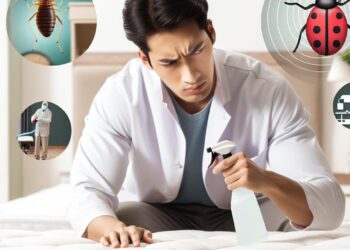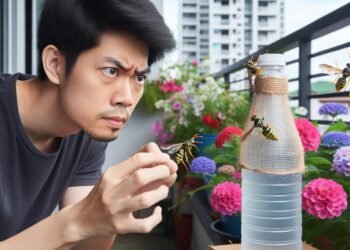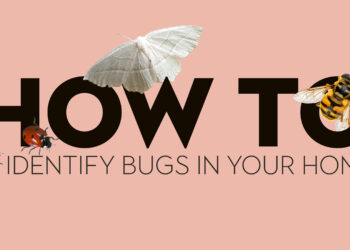Understanding the Link between Pests and Health Conditions: Asthma and Allergies
Introduction
Pests have been around for centuries, and their impact on human health is well documented. Pests can cause a range of health problems, from minor irritations to severe illnesses. In this article, we will discuss the connection between pests and certain health conditions like asthma and allergies.
Allergies are a common health condition that affects millions of people worldwide. Allergies occur when the immune system overreacts to a foreign substance, such as pollen, dust mites, or animal dander. Pests can also trigger allergies. Some common pests that cause allergies include cockroaches, dust mites, and rodents.
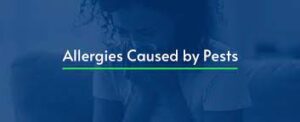
Cockroaches
Cockroaches are a common household pest that can trigger allergies. Cockroach droppings, saliva, and shed skin contain allergens that can cause allergic reactions in sensitive individuals. The symptoms of cockroach allergies include sneezing, coughing, wheezing, and skin rashes. Long-term exposure to cockroach allergens can lead to the development of asthma.
Dust Mites
Dust mites are microscopic creatures that live in dust and feed on dead skin cells. They are a common allergen that can trigger asthma and allergies. Dust mites can be found in bedding, carpets, and upholstered furniture. Symptoms of dust mite allergies include sneezing, runny nose, and itchy, watery eyes.
Rodents
Rodents, such as mice and rats, can also trigger allergies. Their urine and droppings contain allergens that can cause allergic reactions in humans. Exposure to rodent allergens can lead to asthma and other respiratory problems.
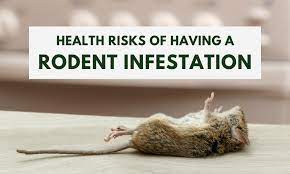
Prevention and Control Preventing and controlling pests is key to reducing the risk of allergies and other health problems. Here are some tips for preventing and controlling pests:
- Keep your home clean and tidy. Pests thrive in dirty, cluttered environments.
- Seal up cracks and gaps in your home to prevent pests from entering.
- Store food in airtight containers and clean up spills and crumbs immediately.
- Fix any leaks or standing water in your home. Pests need water to survive.
- Use a dehumidifier to reduce moisture in your home. This can help prevent the growth of mold, which can also trigger allergies.
If you have a pest problem, it is important to seek professional help. Pest control experts can help you identify and eliminate pests from your home safely and effectively.
Some additional points to consider:
- The Link between Pests and Other Health Conditions: While asthma and allergies are the most commonly known health conditions associated with pest infestations, pests can also cause other health problems. For example, cockroaches can cause digestive issues, such as diarrhea and vomiting, while ticks can transmit Lyme disease, which can cause joint pain and fatigue.
- The Importance of Early Detection: Detecting a pest infestation early is crucial in preventing health problems and minimizing damage to the home. Homeowners should be vigilant in looking for signs of pest activity, such as droppings, gnaw marks, and nests. Regular pest control inspections can also help to detect and prevent infestations before they become a problem.
- Integrated Pest Management (IPM): IPM is a holistic approach to pest control that emphasizes prevention and minimizes the use of pesticides. It involves identifying the root causes of pest problems, such as food and water sources, and implementing measures to eliminate these sources. IPM also involves using non-chemical methods, such as trapping and exclusion, to control pests.
- The Role of Home Maintenance: Keeping the home clean and well-maintained is crucial in preventing pest infestations. Homeowners should seal cracks and gaps in walls and floors, keep food in airtight containers, and dispose of garbage regularly. In addition, maintaining a dry and well-ventilated home can help to prevent pests such as cockroaches and dust mites, which thrive in warm and humid environments.
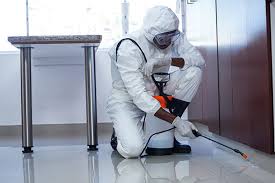
- The Benefits of Regular Pest Control Treatments: Regular pest control treatments can help to eliminate existing infestations and prevent future ones. Pest control technicians can identify and treat pest problems effectively, using a range of methods such as baits, traps, and insecticides. Regular treatments can also help to detect and prevent pest problems before they become severe, minimizing the risk of health problems and structural damage.
The Dangers of DIY Pest Control
While DIY pest control may seem like a cost-effective solution, it can be dangerous and ineffective. Many DIY pest control products contain harsh chemicals that can be harmful to humans and pets. Misuse of these products can lead to serious health problems, including respiratory problems, skin irritations, and poisoning.
In addition, DIY pest control methods are often ineffective at eliminating pests. Pests can quickly adapt to new environments, making it difficult for homeowners to completely eliminate them. Pest control experts have the knowledge and expertise to identify the type of pest, its habits and habitats, and the most effective method for eliminating it.
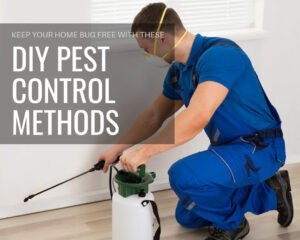
Additional Measures for Pest Control
In addition to seeking professional help and implementing preventative measures, there are additional steps you can take to control pests in your home.
Natural Remedies: There are several natural remedies that can help control pests in your home. For example, peppermint oil can be used to repel mice, while cedarwood oil can be used to repel moths. Diatomaceous earth, a fine powder made from the fossilized remains of marine phytoplankton, can be used to kill insects like bed bugs, cockroaches, and fleas.
Home Remedies: There are also several home remedies that can be used to control pests. For example, vinegar can be used to repel ants, and a mixture of baking soda and sugar can be used to eliminate cockroaches.
While natural and home remedies can be effective in controlling pests, it is important to remember that they may not be as effective as professional pest control methods. If you have a serious pest problem, it is always best to seek professional help.
Integrated Pest Management (IPM): Integrated pest management (IPM) is a holistic approach to pest control that combines preventative measures, natural remedies, and chemical treatments. IPM focuses on preventing pest problems before they occur, and using non-chemical methods to control pests when possible. When chemical treatments are necessary, IPM uses the least toxic and most effective methods.
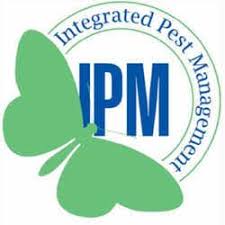
By implementing IPM, homeowners can reduce their reliance on harsh chemicals and pesticides, while still effectively controlling pests in their homes. Many pest control companies now offer IPM services, which can be a more environmentally friendly and health-conscious approach to pest control.
Conclusion
Pests can cause a range of health problems, including allergies and respiratory problems. Preventing and controlling pests is key to reducing the risk of these health problems. Homeowners can take several preventative measures to control pests, including keeping their homes clean and tidy, sealing up cracks and gaps, and storing food properly.



